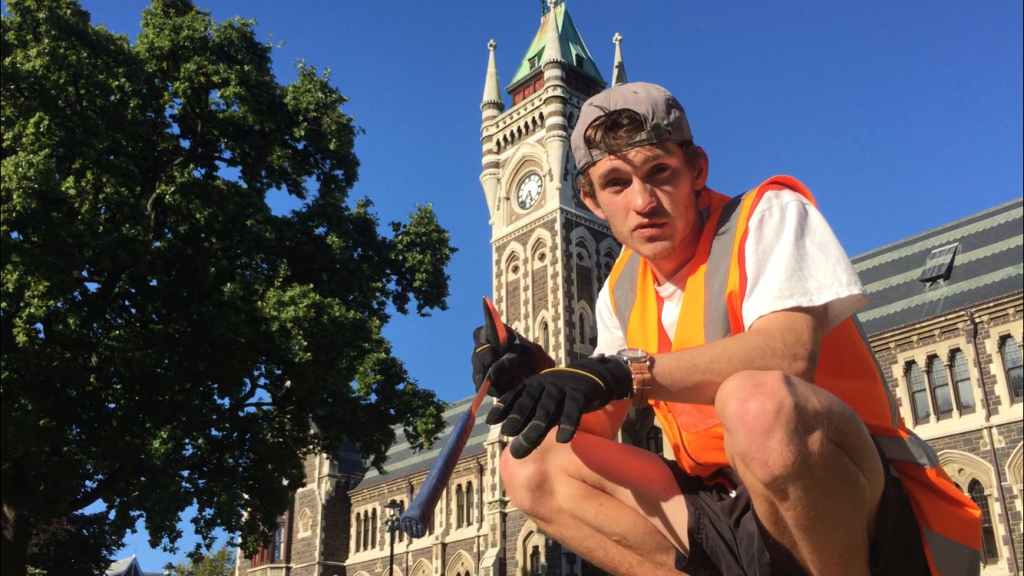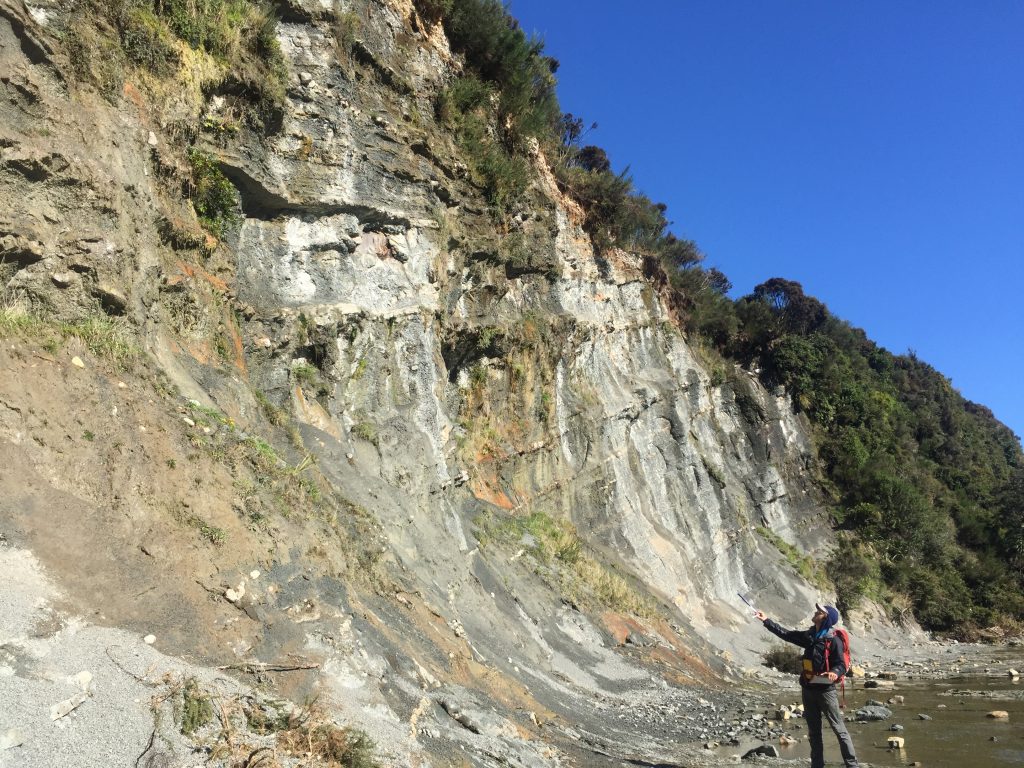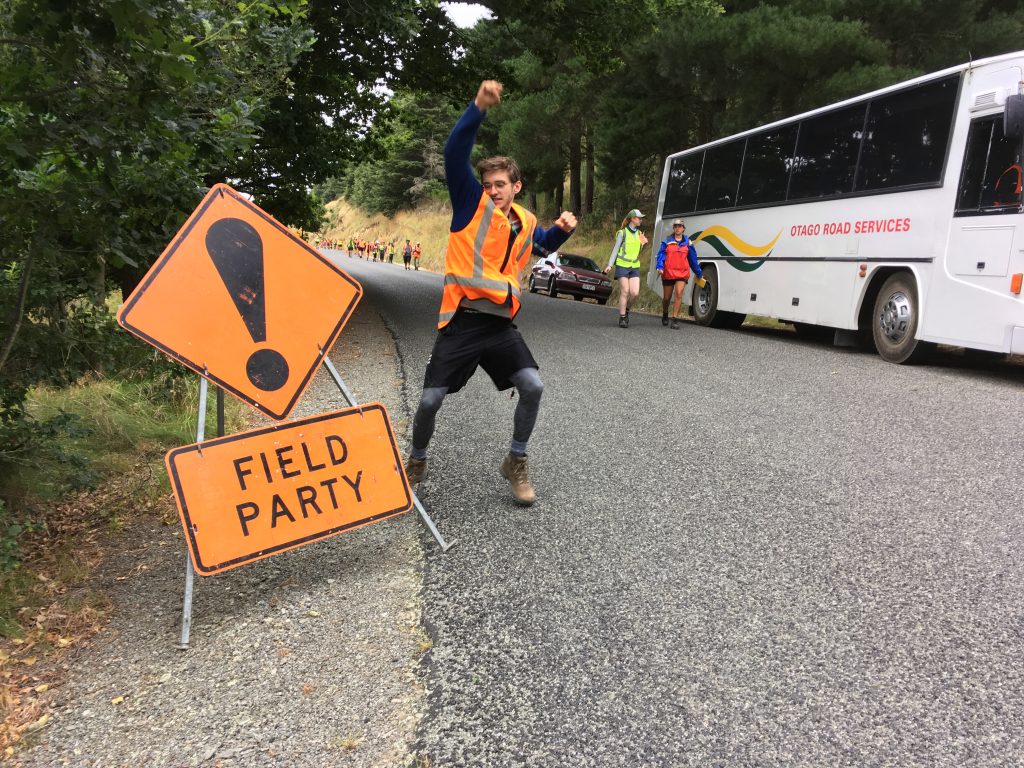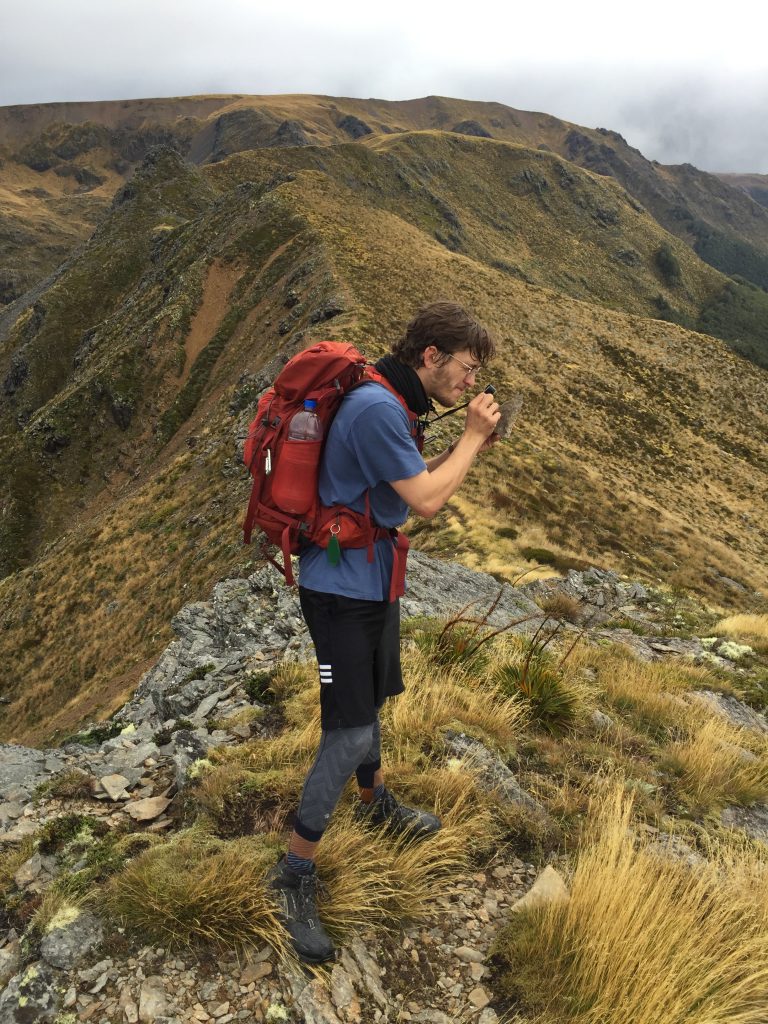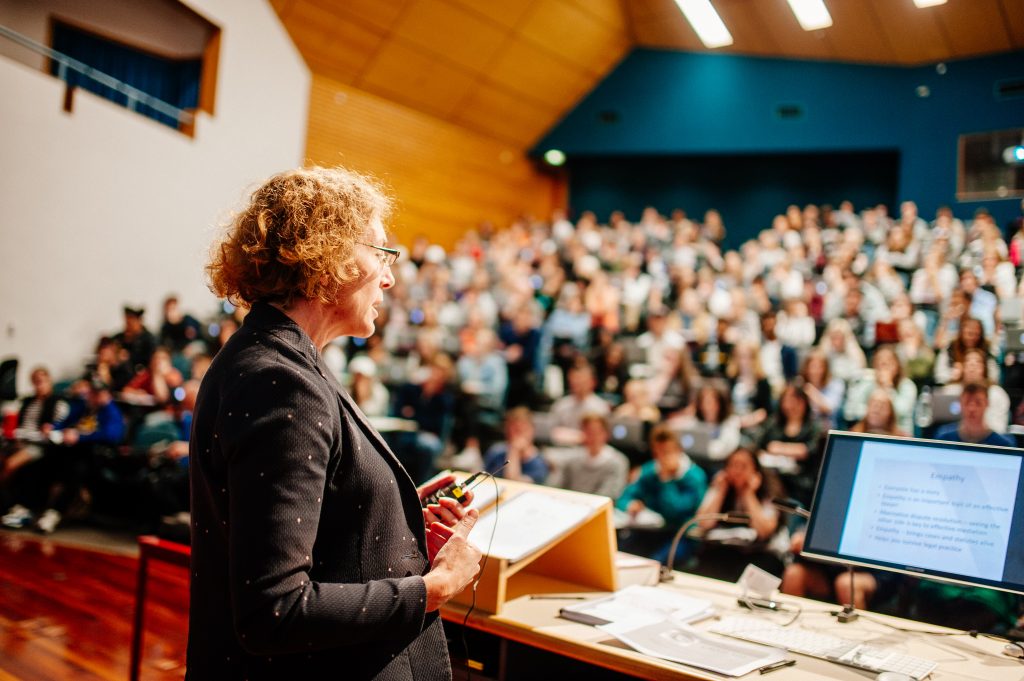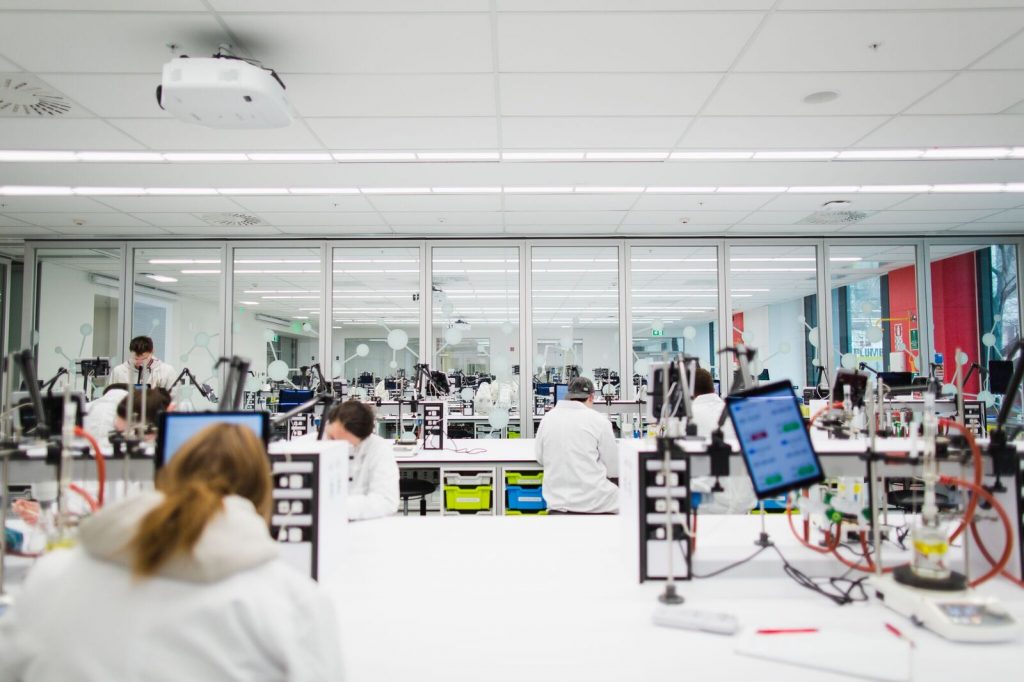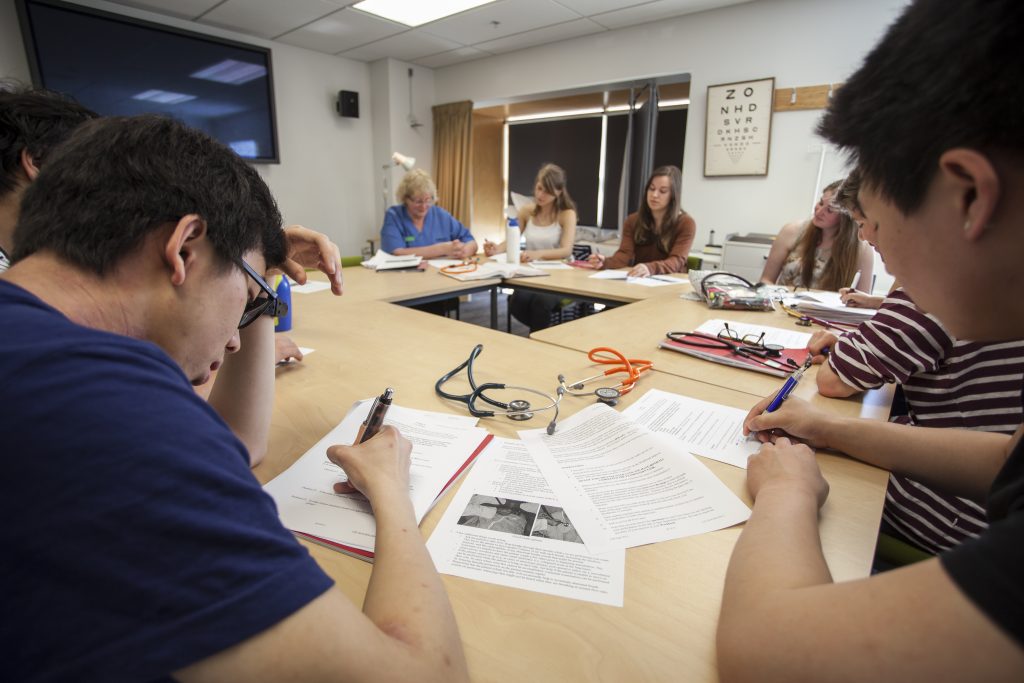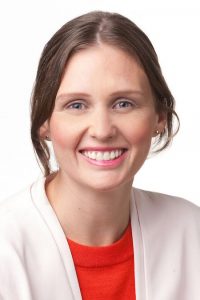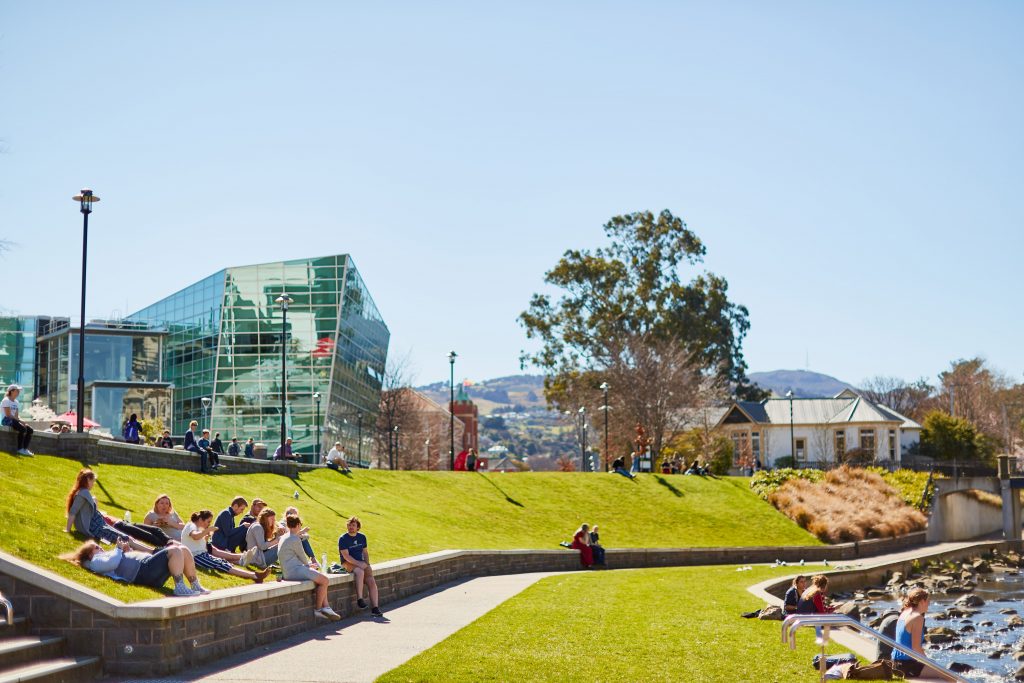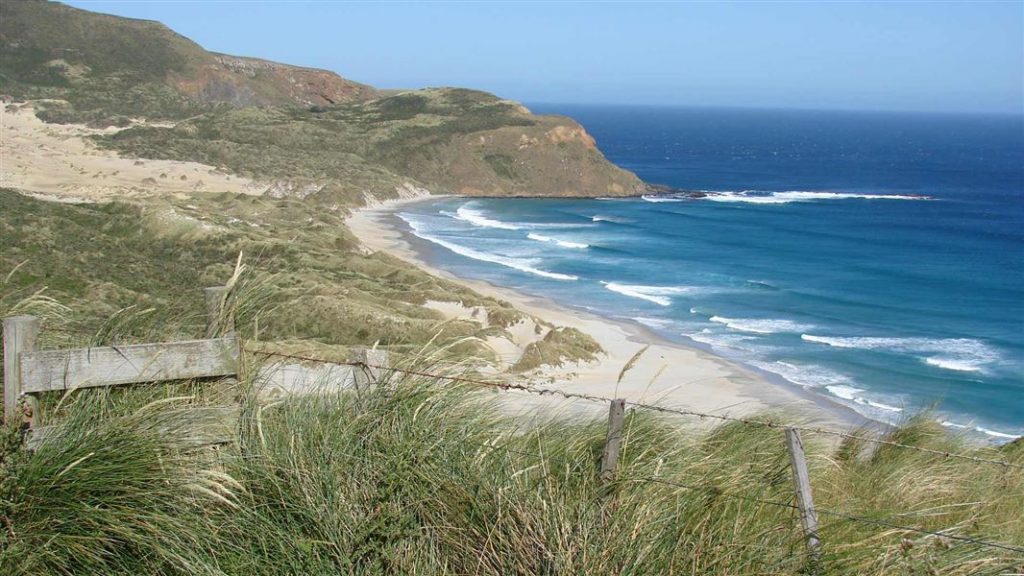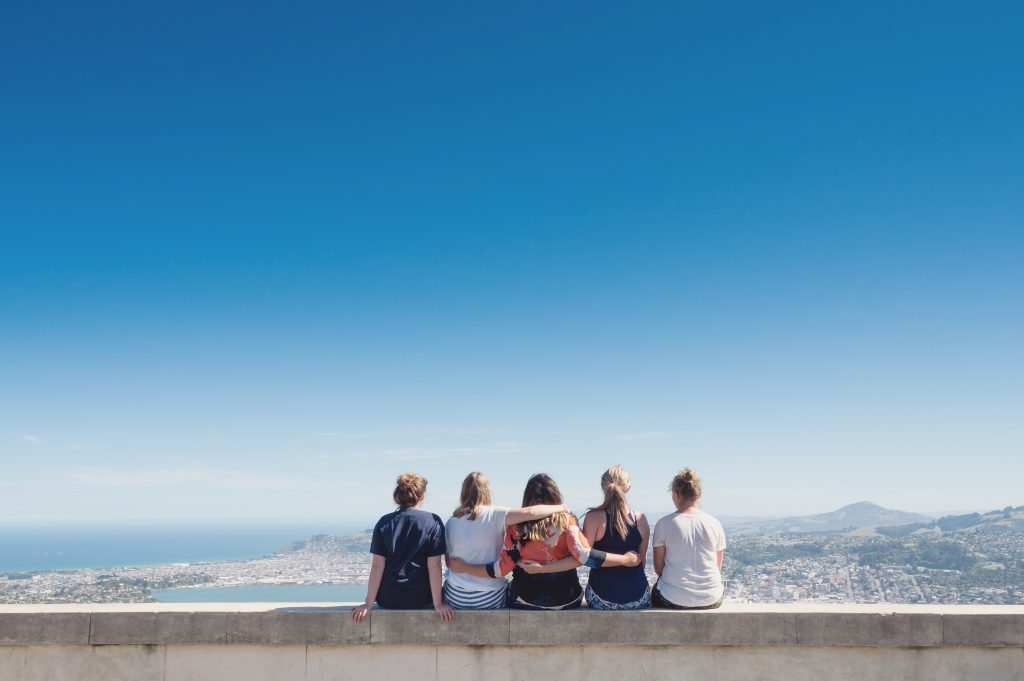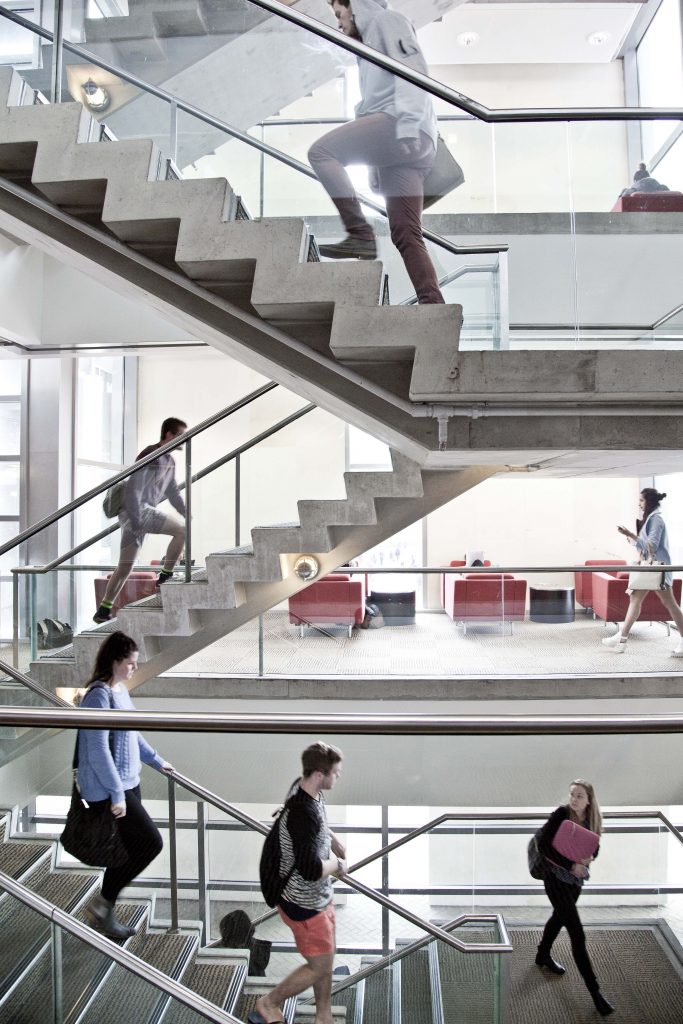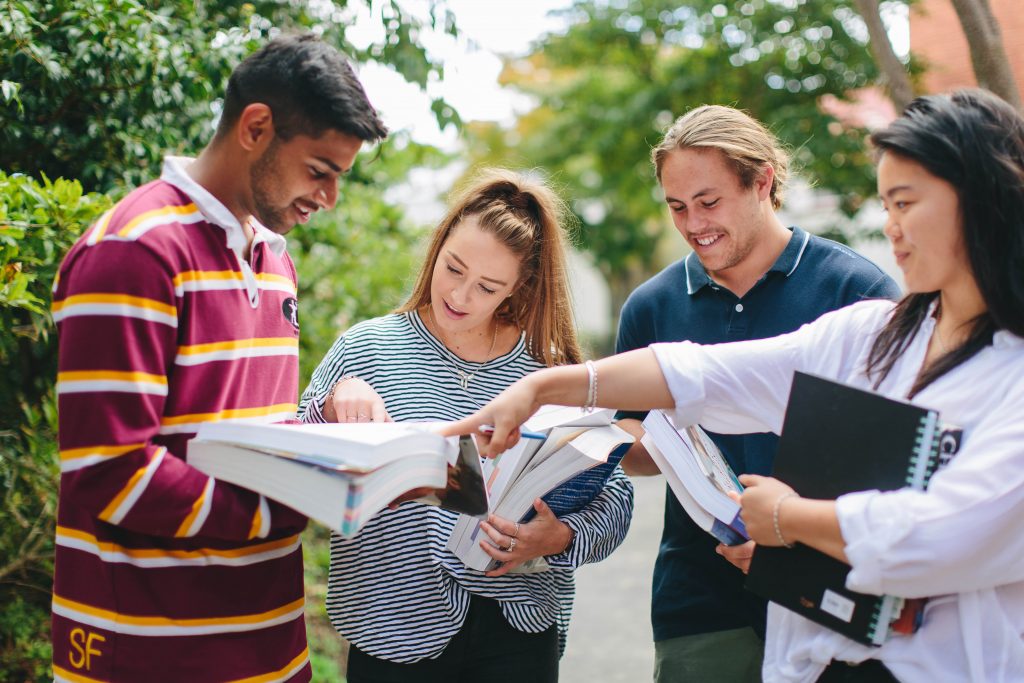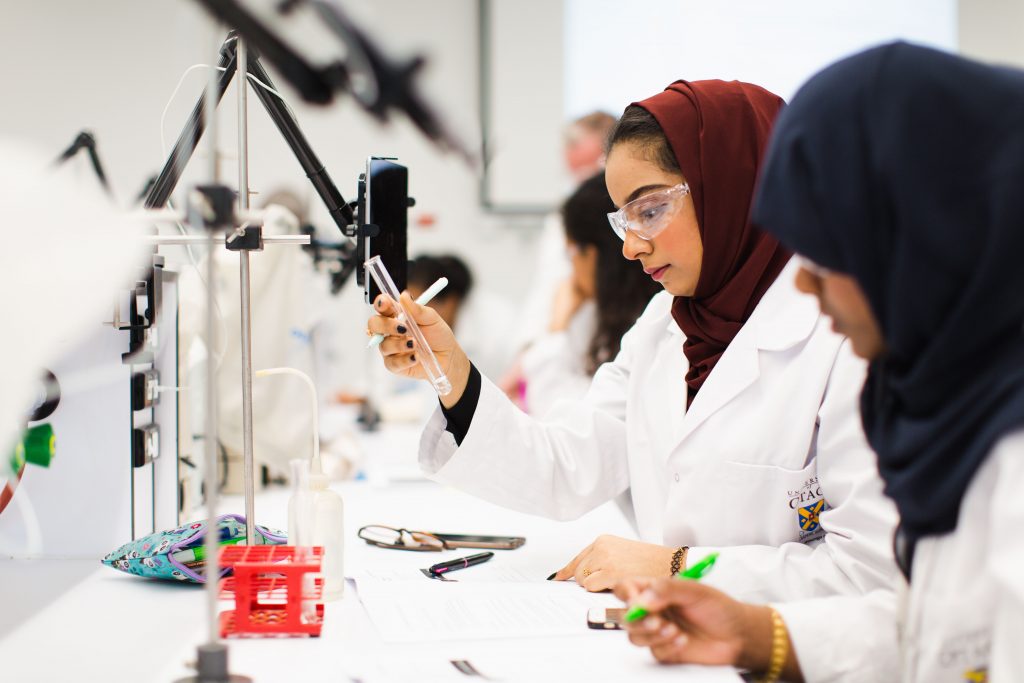Study Abroad at Otago – if you love what you do, you can do it here.
Fox Meyer came to the University of Otago from Washington DC, originally for one semester, but one semester proved not long enough, and he extended his stay for a year. We caught up with Fox, as he is a bit of an international student super-star, and asked him why he came to Otago? What he experienced when he was here – the good and the bad, and the combination of factors that make the University of Otago, in Dunedin, New Zealand, located at the very bottom of the world, such a special place.
“Plenty of schools have good geology programmes, and plenty of schools are in wonderful locations, I chose Otago, because it has both.”
The style of learning was different to what Meyer was used to back home, more independent and ultimately down to personal motivation. If you’re passionate, the academics will do everything they can to help you.
“Academically, the kiwi attitude towards failure was very healthy. Professors won’t hesitate to fail you if you aren’t making the grade, but that’s not the end of the world. They don’t sugar-coat anything. You’re there to learn, and you need to be wrong in order to learn. I’m glad the staff felt the same way.”
The majority of geology coursework involved fieldwork, plenty of time in tents and streams, resulting in a final product as opposed to an exam, which was perfect for Meyer’s learning style.
“Otago has encouraged me to do any sort of project I could conceive of, and point me in the right direction when I’ve needed help.”
This independence and interest for his subject led to assisting a professor looking at the thermal properties of the Otago harbour. The data obtained from this is useful in tracking climate change, as well as prospecting potential geothermal taps. On a whim, Meyer applied for the inaugural ‘Think New Grant,’ from Education New Zealand, and won it!
“I think that part of the reason I won was because I had so much fun applying; enthusiasm for one’s study can often be contagious, so big ups to Otago for fostering that curiosity.”
When asked what a stand out feature of studying at Otago was, Meyer refers to the social lifestyle at Otago as an international student:
“Living in the international community is a wonderful bubble. There’s something going on every night of the week, you’ll meet folks from all over the world, and if you don’t know how to cook, now’s the time to learn!”
And once again, the learning and teaching environment are top of mind:
“I was given a lot of creative freedom and deadline flexibility to produce an end product that I was happy with. That being said, expectations are very high. You had to ask for help, you had to explore, and you really had to get your feet wet. That’s a good way of describing Otago: it’s very easy to get your feet wet, and if you’d like, you can dive a whole lot deeper.”
Best memory?
“I have a year of best memories. The most humbling was during field camp when I’d just submitted my first map sheet, and I thought I was really hot stuff. I felt really big for my boots, was very confident with my lab experience back in the States. Boy, was I mistaken. Way off! My map sheet made no sense at all and the lecturers tore it to shreds. I asked for advice, listened to their advice, went back out, and got a 98% on my next map. Otago taught me not to think I know too much. There’s always room for improvement.”
Worst experience?
“Leaving Otago. It’s that good. If you’re someone who likes their independence, who can work hard and play hard, there’s really nowhere else to go. Definitely not Auckland.”
Future plans?
“I’ll be back to New Zealand as soon as I can, I’d like to explore jobs in the geothermal sector. I really believe New Zealand has both the natural potential and the social support to become a geothermal powerhouse.”
Great to catch up with you Fox, congratulations on graduating with a Bachelor of Science (BSc) majoring in Geology, we wish you all the very best with your future endeavours.
Our favourite takeaway quote from chatting:
“If you love what you do, you can do it here.”
To find out more about studying at the University of Otago, click the big yellow button below and start your journey!
Nicky Richardson is an International Marketing Coordinator at the University of Otago. With degrees in music and marketing, both from Otago, she is passionate about education, and the places it can take you.
How will I learn at Otago?
If you are a new student to the University of Otago you will no doubt have a lot of questions……..and sometimes asking questions is challenging…..so, we are going to try to explain a few things here on our blog, like how do you learn at Otago? It might seem like a silly question, but trust us, no question is ever silly, and we have received a multitude of feedback from international students that suggests our teaching and learning style is different to other parts of the world. So, how will you learn here?
The Lecture
This will be your main source of information and knowledge for the majority of your studies. A lecturer, or a group of lecturers are assigned to teach each of the papers you are enrolled in. Lectures are held in specially designed rooms and last for 50 minutes – and the information is presented to you (as pictured) with verbal commentary following power point slides, printed material may be handed to you in class, including selected readings. Sometimes it may be tempting to miss a lecture, or two……(it is a beautiful sunny day and you’d rather be at the beach) but we urge you to not make this a habit – you’ve paid a lot of money to get this education, so be smart and take all the opportunities you can, including turning up to lectures.
The Lab
If you are studying towards a science or health science qualification, on top of lectures you will get used to spending a lot of your study time in laboratories, like the newly completed Mellor Laboratories pictured here. Here you will get the world renowned ‘hands on’ and practical learning style that we are so well known for here. This isn’t just sitting back and taking information in, this is you doing it all by yourself (with the guidance of a staff member of course!)
The tutorial
The tutorial is again something that we are really well known for – it’s a chance for more opportunity to really interact with staff and your fellow students. Tutorials, as opposed to lectures which can comprise of hundreds of students, are kept down to a smaller scale of approximately 10 students to one staff member. This gives you the chance to get one-on-one assistance, and the tutorial is also used as a way to help figure out the best way to go about an assignment, or to put you into teams to work on your skills working with others.
Self directed study
Another fact you may not know about studying at the University of Otago is that our academics believe you need to be self motivated in order to succeed. They can encourage, inspire and help, but ultimately you have to do the work. Making sure that you plan time to do the readings and to get onto the assignments ahead of the due date. Our tip? Buy a wall calendar/planner to outline all of your lectures/tutorials/labs and assignment deadline dates, it will really make life easier. It might sound a little dull, and something your parents might say, but we really do want these university years to be some of the best years of your life, so taking a little time to map things out will definitely help.
Nicky Richardson is an International Marketing Coordinator at the University of Otago. With degrees in music and marketing, she is a recent graduate of Otago herself – she loves Otago so much she ended up getting a job here!
Our University of Otago staff are nothing short of inspiring…..
When it comes to marketing the University of Otago both internationally and domestically, there are a group of individuals that make our job really easy – the academic staff. We have an exceptionally talented and hard working body of academics that are passionate about their research, education and encouraging students to ask questions, think for themselves and ultimately, hopefully contribute to making the world a better place. As part of our blog series, we are regularly going to sit down with one of our academics and ask 5 questions, so today we’re catching up with Dr Anna High, from the Law Faculty, Anna currently teaches Evidence Law and Criminal Law.
Research Expertise
What is your area of research expertise, and what is it about your particular area that motivates you?
“I have a number of research interests, but my current focus is Chinese Law. My DPhil (equivalent to our PhD) focused on the negotiated existence of unregistered orphanages and child welfare NGO’s (Non-Governmental Organisations) in China, and their interactions, as quasi-legal organisations with state actors. I’m in the final stages of preparing a book on this topic, based on my DPhil fieldwork and updated data gathered in 2017.”
How did you find your passion?
“I studied Mandarin from primary school right through to University in Australia. Being a Chinese speaker opened a lot of doors when I was at university, including great clerkship opportunities in Hong Kong, Shanghai and Beijing. By the time I was choosing my DPhil topic, I knew I wanted to study the nature and role of law in Chinese culture. The topic I chose to focus on – Chinese child welfare law – also intersects with my interest in how the law protects vulnerable populations.”
How did you end up in Dunedin?
“I’m originally from Horsham, Victoria, and attended university at the University of Queensland. My journey to Dunedin has taken me almost right around the globe – from UQ to University of Oxford, to complete the BCL, MPhil and DPhil in law as the Queensland Rhodes Scholar ’08; to the US, where I first taught at Marquette University Law School, and then at Loyola University Chicago School of Law; then finally to Dunedin. Our family felt the time was right to return down-under, and we were excited for a sea-change in a beautiful part of the world with a world-class university.”
Favourite place in Dunedin/secret insiders tip?
“My family loves Sandfly Bay, early in the morning when you get the beach to yourself. The hike from Sandy Mount down to the Bay is amazing, especially when the flowers are out, although really hard work getting back up the dunes.”
Favourite place in the world to travel to?
“Being married to an American, and having studied in China and Europe, I’ve been on some amazing holidays around the world. Places that stick out: Grand Teton National Park, Umbria, the Black Forest and Shanghai.”
What advice you would give your 20 year old self?
“Take your time figuring out what you want to be, where to go, what to study, where to travel. There’s no need to rush into a major or try to set your life’s trajectory in stone when you’re so young.”
Thanks for your time Anna, we think you’re a star, and we are lucky to have your knowledge, passion and expertise here at Otago! If you would like to find out more about studying at the University of Otago, click on the link below.
Nicky Richardson is an International Marketing Coordinator at the University of Otago. With degrees in music and marketing, she is a recent graduate of Otago herself – she loves Otago so much she ended up getting a job here!
Just because we can, does it mean we should?
In today’s world, more than ever before we require people who are trained in an interdisciplinary nature so that they can ask the hard questions like the title of this blog; “just because we can, does it mean we should?” This kind of dilemma is one that people will increasingly face as science and technology continually allow us to achieve what was once deemed impossible. The University of Otago has taken this into consideration and developed an interdisciplinary degree called the Bachelor of Arts and Science (BASc) and we’re going to take a closer look at it in today’s blog post.
Humanities or Science?
Traditionally universities around the world have encouraged students to specialise in either science or the humanities. There just hasn’t been an option of being able to do both and quite frankly it is extremely limiting to those students who can do both. Thankfully, Otago has always been very flexible when it comes to degree structure and students have long been able to include some humanities papers in their science degrees, and science papers in their arts degree. They have also been able to do a double degree which would usually take five years, but now students at Otago have another option that mixes both disciplines with the BASc – it allows you to have a science or an applied science major and an arts major but it only takes four years.
Subject options
We have a reputation here at Otago of being very flexible when it comes to course choices and degree structure and if you’re looking for a degree that offers a multitude of subject options then the BASc is definitely the one for you – there are about 1500 possible combinations of major subjects available so you really don’t just have to fit into one box with this degree!
Well rounded individuals
One of the reasons the University of Otago has developed this degree is to give employers more of what they want – well rounded individuals who are not only educated in their chosen field, but as mentioned in the introductory paragraph individuals who can see the world from different views or paradigms. Artificial intelligence, genetic manipulation, areas of study that are become increasingly advanced and potentially useful, but areas that are not without risk. The world needs people that can understand the science of an issue but who are also aware of our very human nature and what we have learnt from our past experiences and mistakes.
Follow your passions
Whilst some degrees and programmes will ultimately place you directly into a job in a chosen field sometimes the best way to find your chosen career path is to follow your passions. The BASc will allow you to do this, and as Associate Professor Lisa Ellis, Philosophy Lecturer and Bachelor of Arts and Science Adviser states: “You are better prepared if you follow your passions and develop yourself intellectually…..you are much more attractive to an employer.”
Nicky Richardson is an International Marketing Coordinator at the University of Otago. With degrees in music and marketing, she is a recent graduate of Otago herself – she loves Otago so much she ended up getting a job here!

